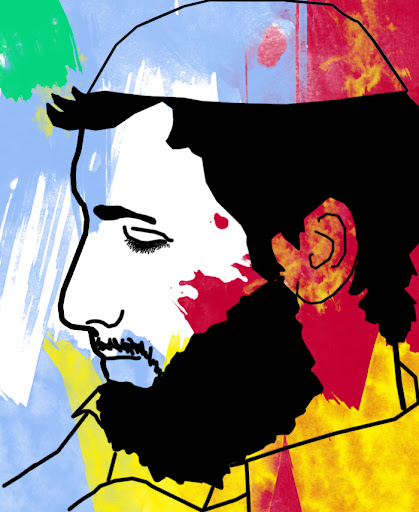In a conversation with a friend the other day, we began to speculate what September 11, 2001 would have been like had the social platforms we used today been available. Think of the tweets, the images, the chunks of data that would flow in . . .
I live with social media. Save for the 24-72 hours of shabbos and yom tov, I stop checking up and checking in only when I'm asleep.
Platforms like Twitter shine during these international moments of trauma: Mumbai, Haiti, Japan, the Arab Spring . . . They've brought us closer. The world has shrunk, our horizons have broadened, and the stream of media has compounded and multiplied beyond what anyone could ever hope to process. Experiences are shared across national boundaries with friends colleagues. And yet . . .
And yet I'm glad there was no Twitter or Facebook during the attacks on September 11.
It was Elul - the preparatory month before the High Holidays - and not any Elul mind you, but an Elul in Yeshivah, an Elul in Lubavitch. Elul marks the start of the new year of studies. It's the time of year when everything is fresh. The excitement over the approach of the High Holidays is tangible in the air: It's so thick that the air can be cut, and spread like thick globs of sweet honey on a tart apple slice. There are farbrengins - chasidic gatherings - at night, the zal - the study hall - is a hive of activity. Then, just days before Rosh Hashana, we began slichus - the customary prayers of penitence said early in the morning.
It was on that day, as I stood undressed in the mikva for ritual immersion before prayer - exposed to all as I prepared to immerse myself in penitent waters - that a friend came rushing in to tell us what he had heard on the radio. A plane had struck the Twin Towers. A freak accident? A Cessna gone out of control? Someone else came in - he had heard that the empire states-building had been struck . . . Something was amiss.
There was no TV in yeshivah. Far off in Los Angeles, we couldn't look out the windows like our peers in Brooklyn and see the disaster unfolding. The cooks kept the radio playing in the kitchen at full blast that day. Information spread through word of mouth - updates from families in New York, rumors spread by the guy who, despite with the perennial mustard stain on his jacket, seemed to know (or at least think he knew) everything. The president was in hiding, all planes had been grounded, the Mosad has been called in to assist, they caught a dozen more planes with terrorists on them . . . the stories grew ever wilder.
After breakfast we had a better idea of what was going on . . . The details had come in. "Just the facts, ma'am." Despite the information though, no one had seen any pictures.
That evening I went to visit my friend Z.
"How are you?" I asked his father.
"Horrible!" He answered.
The television was playing in their den. It was only then, the evening of September 11, that I saw the endless loop of the planes flying into the towers. Over and over again - cinematic in its scope. So utterly terrifying.
I printed out pictures of the devistation on Z's computer and brought them back to yeshivah.
Back on campus everyone was still up. One rabbi called us all in to tell us that this was a sure sign that Moshiach was coming. A Zohar had been found that spoke of falling towers...
I believe that all of these experiences etched in my mind - the doubt, the isolation, the horror and the humanity - would not have been possible with social media. Not in my world, and not - I believe - in anyone else's. Had the tweets come in, we would have lost the forest for the trees. We would have been unable to grasp the unadulterated enormity of the situation - unable to step back and experience the tragedy in its totality.
On September 11, there was a sense of community shared not based on constant updates, but rather one based on shared emotions and experiences.
.....
May those murdered on this day be remembered for the good that they lived for and serve as guiding lights for us all . . .
זכור, אל תשכח
9 months ago








2 comments:
Very well written and an excellent point. Thanks for this post.
I agree. modern technology connects is with people far away, but it takes us away from the people are close.
Post a Comment